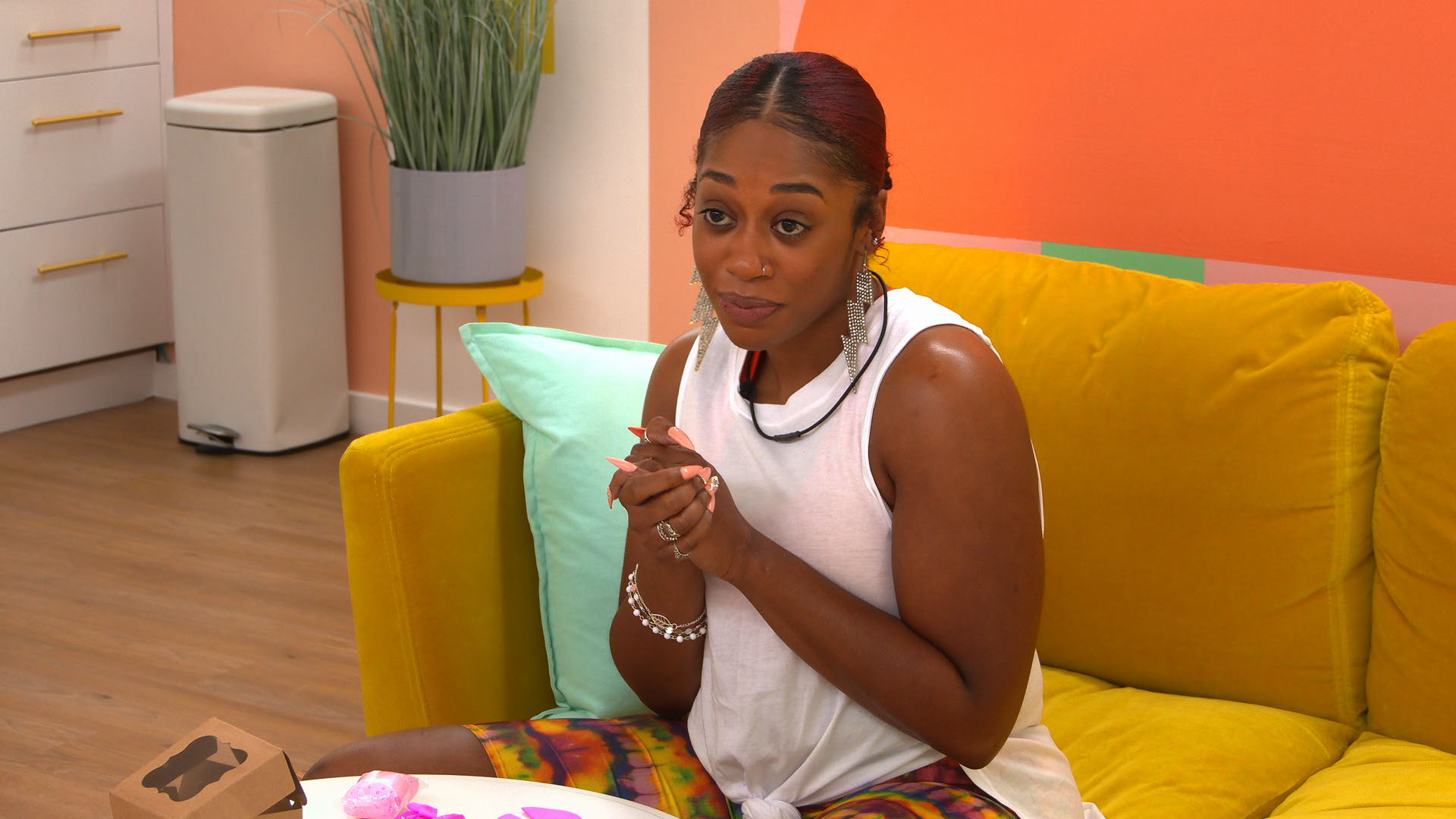Reality competition shows like The Circle can be heartwarming in their own way, but they can also show how people can justify their hostility – a reality connected heavily to how we racialize each other.
Confession: I like watching reality competition shows like The Circle. I have been watching every US season since 2019 because I wanted to find something mind-numbing to put on as background noise and this really works. The general gist is that contestants compete to win $100K by trying to become the most popular (top influencer) at the end of the show. They all live in separate rooms in an apartment building and are only interacting through a social media platform, “the Circle.” They can play as anyone. Themselves, themselves with a few lies, or someone else (the catfish). And like many competition shows, each contestant has a story on why they want that life-changing amount of money.
When I started watching this show, I was very conflicted on how much of myself I had to put in my application writings. I felt like I did not belong in places alongside people that wrote about their mission trips or spectacular summers interning with a US senator. Seeing these contestants with similar stories to mine state their financial situation with vulnerability (and get supported by others) was probably why I kept watching even with the really cringey dialogue and overuse of hashtags. A more cynical person could argue that these stories are only meant to tug on heartstrings, yet I simply nodded and kept watching. The show worked for me because I needed to see a dynamic where people could share their hardships and not be shamed or pitied for them.
But even with this optimistic outlook, I started noticing racial conflicts between the players in season three that made me reconsider the consequences of these stories and motivations for winning.
This season had a major divide. In the midst of the competition, there was a clear split of two alliances. One was composed of people of color while the other side was mainly composed of white people ( all of the profiles on this side were white presenting). The latter side went out of their way to target Kai Ghost, a Black woman, in particular. There was one moment in episode 11 where Kai was asked why she wanted the money, and people from the opposing side were quick to theorize that Kai would answer in a way that would make the new player like her. They started throwing snippy comments about her around, trying to dismiss her before she even began typing. Kai revealed she wanted to help her family, including helping with the rehabilitation of someone who she’s close with. The queer man of color posing as a white woman was the only one that immediately felt bad for jumping to conclusions while the other two saw it as strategic, with one exasperatedly stating that “this is basically her pitch for why she should win.”
This particular moment stood out to me because it was when I realized that all the other microaggressions I was sensing directed at Kai were slyly being overlooked in the name of competition. While one player does start to reflect on their immediate assumptions, the other two double-down on their reasonings. Kai is once again being labeled as strategic and sneaky even though everyone is playing the same game as her, wanting to be liked and forming alliances.
There can only be one winner, but is that justification enough for the things we do to each other? Is it enough to ignore the pain of others? To continue our division, even if it is racialized?
There is a loss of empathy, of care, of understanding when all you see and think about is competition. Although race is a sensitive topic (no one wants to be labeled a racist, I know), we are surrounded by racist history, structures, and systems. When it comes to money, which equates to survival for a lot of us, racism becomes even more pronounced. Authenticity is suddenly only ever a ploy to get money and racial categories become easy to use against each other. The questions of why we, as a collective, are struggling fall to the wayside as we have to individually move ahead. In trying to succeed, we slowly lose out on truly seeing each other.
I’ve internalized this dynamic, even as I try to unpack it, too often asking myself, “What right do I have to be here and not them?” When your skin is brown and your name is Spanish, your story is expected. Therefore, it always feels like there can only be a few of us at most. More likely, one or none. So sometimes, I blame myself for existing as one of the few, pondering if I’m not really worth seeing at all. Of course, the problem is not that I am taking up space, it is that my fellow Latinas are not with me. That’s why I’m trying to reject that script and instead demand that we fill up the rooms with the faces I grew up with, the stories I don’t yet know, and the bonds that come from knowing each other.

